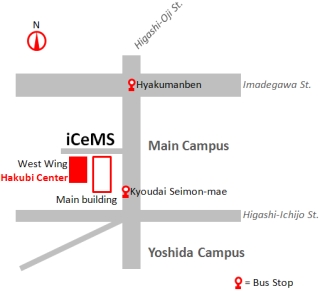Seminar index
応募書類の受付は4月26日13時に締め切りました。
書類の受諾状況は、5月中旬頃に応募者登録サイトに表示されます。
"Application forms were closed at 13:00 on 26 April.
The acceptance status of documents will be displayed on the registration website around mid-May."
44th Hakubi Seminar
Closing the Regional Human Rights Gap in Asia: The Prospects for a Regional Human Rights Mechanism
- Speaker:Silvia Croydon (The Hakubi Center for Advanced Research), Ian Neary (University of Oxford)
- Date:17th July 2012 (Tuesday), 16:00-
- Venue:The Hakubi Center for advanced research (iCeMS West Wing 2F, Seminar Room)
- Presentation Language:Japanese
Summary
Regional human rights mechanisms bring human rights relief to individuals, and also produce systemic policy changes even in cases where individuals have their rights most begrudged by an overwhelming majority in both the public and the parliament. Perhaps the institution most clearly illustrating this is the Strasbourg-based European Court of Human Rights, which has compelled governments across Europe to reform laws in such a way as to fulfill their commitments to the European Convention of Human Rights. Examples of issues on which its judgments have had crucial impacts include anti-terror legislation in the UK, minority discrimination in Eastern Europe, the right to a fair trial in Turkey, and working conditions across the EU. Beyond Europe, regional mechanisms for human rights protection of some kind can also be found in the Americas, the African continent and the Arab peninsula. This is not, however, the case in Asia, which remains the sole region where there is neither a regional human rights court or commission, nor a human rights treaty - a state of affairs which is not only an interesting anomaly, but also affects as large a proportion of the world's population as 60%. Please come along on 17th and hear more about this vacuum and the prospects for it to be filled. In this session, I will be joined by Prof. Ian Neary (University of Oxford).









